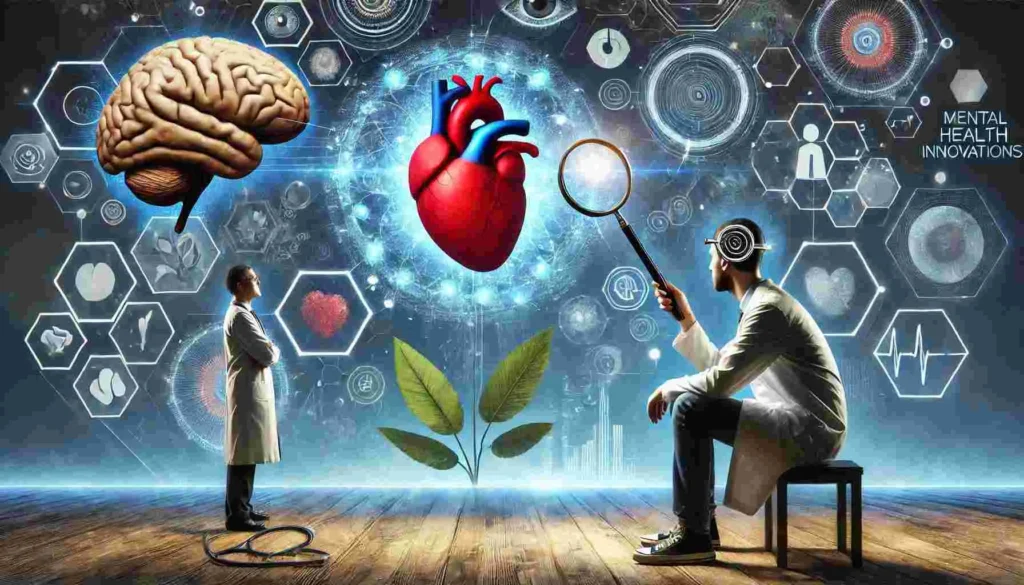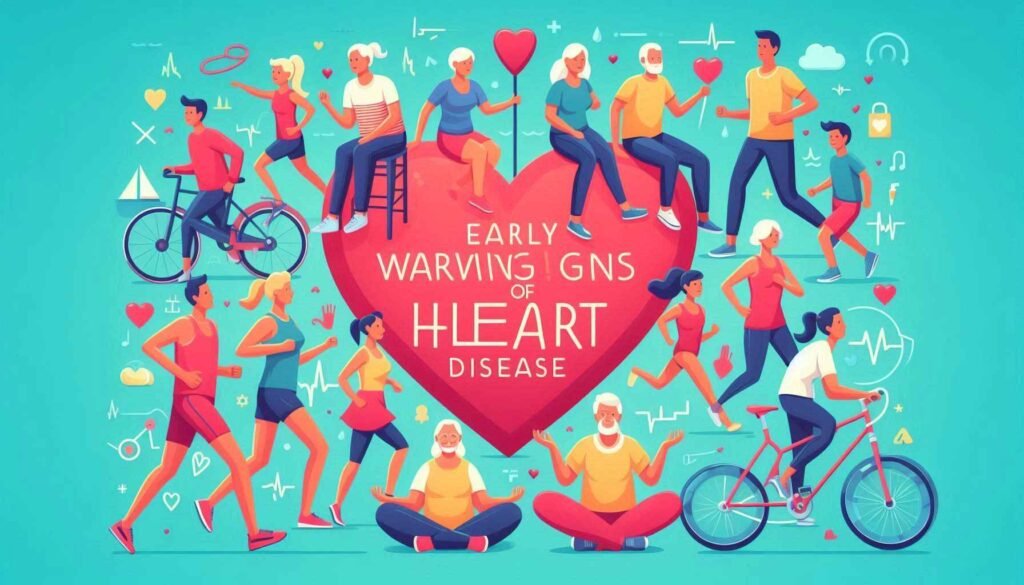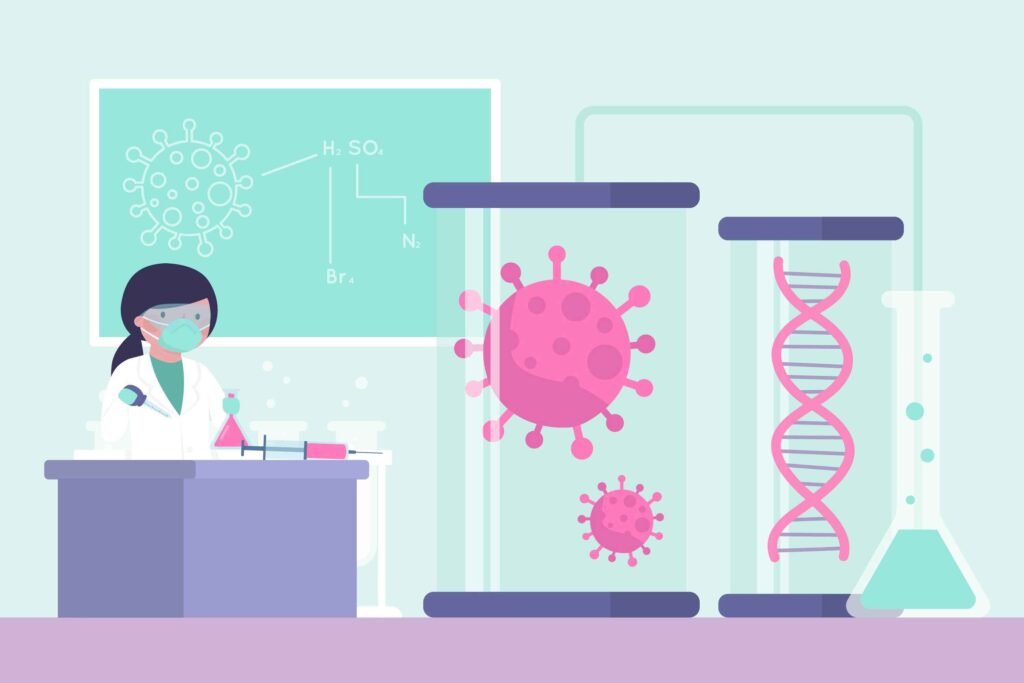
Mental Health Innovations: New Therapies and Treatments on the Horizon
Mental Health Innovations: New Therapies and Treatments on the Horizon
Introduction to the Evolving Landscape of Mental Health
In recent years, the approach to mental health care has transformed significantly, driven by groundbreaking research, technological advancements, and the increasing awareness of mental well-being. While traditional therapies like cognitive behavioral therapy (CBT) and medication have provided relief for many, the need for more personalized and innovative solutions continues to grow. This blog explores some of the most promising mental health innovations and treatments on the horizon, offering hope to millions worldwide.
Why Mental Health Innovations Are Crucial
The global mental health crisis has been exacerbated by various factors, including the COVID-19 pandemic, economic instability, and social pressures. According to the World Health Organization (WHO), depression and anxiety disorders have surged by over 25% since 2020. Traditional treatments, while effective for some, often fall short for others due to varying individual needs. Innovations in mental health aim to bridge these gaps, providing tailored care, enhancing accessibility, and addressing the root causes of mental illnesses.
Part 1: Emerging Therapies Transforming Mental Health Care
1. Personalized Medicine in Mental Health
One of the most exciting developments in mental health care is the rise of personalized medicine. By leveraging genetic testing and biomarkers, healthcare providers can now design treatments tailored to an individual’s unique biological and psychological profile. This approach minimizes trial-and-error prescribing, enhancing effectiveness and reducing side effects.
Key Benefits of Personalized Medicine:
- Faster identification of suitable medications.
- Reduction in adverse reactions.
- Increased patient adherence to treatment plans.
2. Psychedelic-Assisted Therapy
Psychedelic-assisted therapy, once stigmatized, is now gaining mainstream recognition due to its potential to treat complex mental health conditions. Substances like psilocybin (magic mushrooms) and MDMA are showing promise in addressing treatment-resistant depression, PTSD, and anxiety.
Breakthrough Research:
- Studies published in The Lancet Psychiatry highlight psilocybin’s effectiveness in reducing depressive symptoms.
- The U.S. Food and Drug Administration (FDA) has granted “breakthrough therapy” designation for MDMA-assisted therapy for PTSD.
3. Digital Therapeutics and Mobile Apps
Technology continues to reshape mental health care, with digital therapeutics and mobile apps leading the way. These tools provide on-demand access to resources, self-guided therapy modules, and virtual support communities.
Popular Examples:
- Headspace and Calm for mindfulness and meditation.
- Woebot for AI-powered cognitive behavioral therapy.
- BetterHelp for virtual counseling sessions.
4. Virtual Reality (VR) in Exposure Therapy
Virtual reality (VR) has emerged as a powerful tool for exposure therapy, particularly for individuals dealing with phobias, PTSD, or social anxiety. By creating immersive environments, VR allows patients to confront fears in a controlled and safe setting.
Real-World Applications:
- Veterans with PTSD using VR to revisit traumatic events safely.
- Social anxiety sufferers practicing interactions in virtual social settings.
- Phobia treatments for heights, flying, or confined spaces.
5. Neurofeedback and Brain Stimulation Techniques
Neurofeedback therapy uses real-time displays of brain activity to teach self-regulation of brain functions. Additionally, techniques like Transcranial Magnetic Stimulation (TMS) and Deep Brain Stimulation (DBS) are showing promise in treating severe depression and OCD.
Advantages of Neurofeedback:
- Non-invasive and drug-free treatment option.
- Can improve focus, reduce anxiety, and enhance emotional regulation.
Addressing the Accessibility Gap in Mental Health Care
While cutting-edge therapies and technologies offer hope, accessibility remains a significant challenge. Millions worldwide struggle to receive adequate mental health care due to geographical, financial, or social barriers. Innovations in mental health aim to bridge this gap, ensuring that everyone, regardless of location or socioeconomic status, can access effective treatment options.
1. Teletherapy and Remote Counseling Services
Teletherapy has emerged as a vital solution to improve mental health care access. Platforms that offer virtual therapy sessions allow individuals to connect with licensed professionals from the comfort of their homes. This approach reduces the need for travel, making therapy more convenient and accessible, particularly for those in rural or underserved areas.
Benefits of Teletherapy:
- Convenience: Flexible scheduling and location-independent access.
- Anonymity: Greater privacy for individuals who fear social stigma.
- Affordability: Lower costs compared to in-person visits.
Teletherapy is especially beneficial for individuals who struggle with mobility, have busy schedules, or face cultural barriers to seeking help in person.
2. AI-Powered Mental Health Tools
Artificial intelligence (AI) is revolutionizing mental health care by offering scalable solutions that complement traditional therapies. AI-powered chatbots, like Woebot and Replika, provide round-the-clock support and early intervention by identifying signs of distress and offering coping strategies.
How AI Tools Support Mental Health:
- 24/7 Availability: Immediate support without long waiting periods.
- Early Detection: AI can analyze speech and text patterns to detect potential mental health issues.
- Personalization: Algorithms adapt to user behavior, providing tailored guidance.
While AI tools do not replace professional therapy, they serve as an accessible first step for those hesitant to seek traditional help.
3. Community-Based Mental Health Programs
Community-driven mental health initiatives play a critical role in improving access and equity. These programs focus on raising awareness, reducing stigma, and providing support within local communities. Mental health ambassadors, peer support groups, and culturally sensitive outreach programs help break down barriers to care.
Examples of Community-Based Approaches:
- Mental Health First Aid Training: Educates community members to recognize and respond to mental health crises.
- Peer Support Groups: Encourage shared experiences and mutual support.
- Local Outreach Services: Tailored support for marginalized populations.
These programs are essential for reaching individuals who may not have access to professional therapy or digital tools.
Innovations in Mental Health for Diverse Populations
4. Culturally Adapted Therapies
Mental health care is not one-size-fits-all. Cultural beliefs, values, and practices significantly impact how individuals perceive and manage mental health issues. Culturally adapted therapies ensure that treatments are relevant and effective for diverse populations.
Key Elements of Culturally Adapted Therapies:
- Language Sensitivity: Therapy provided in the individual’s native language.
- Cultural Awareness: Therapists trained to understand cultural contexts and beliefs.
- Community Involvement: Inclusion of cultural leaders to bridge gaps between modern therapies and traditional beliefs.
These therapies help reduce stigma and improve engagement in mental health care for minority groups.
5. Mental Health Support for the LGBTQ+ Community
The LGBTQ+ community faces unique mental health challenges due to discrimination, social stigma, and identity-related stress. Innovations in mental health are increasingly focusing on creating safe and inclusive spaces for LGBTQ+ individuals.
Innovative Approaches for LGBTQ+ Mental Health:
- Affirmative Therapy: Therapists who specialize in LGBTQ+ issues.
- Online Support Networks: Safe platforms for connecting with others who share similar experiences.
- Inclusive Mobile Apps: Apps like “Pride Counseling” offer specialized therapy for LGBTQ+ individuals.
These resources provide critical support, promoting mental well-being and resilience within the community.
6. Youth-Oriented Mental Health Programs
Children and teenagers are experiencing a mental health crisis, with increasing rates of anxiety, depression, and social isolation. Innovative therapies tailored for youth are essential for early intervention and long-term well-being.
Innovative Solutions for Youth Mental Health:
- School-Based Mental Health Services: Integrating mental health resources into educational settings.
- Gamified Therapy Apps: Tools like “SuperBetter” and “MindDoc” use gamification to engage younger audiences.
- Social Media Support Groups: Moderated groups that provide peer support and mental health education.
By addressing mental health concerns early, these programs help prevent more severe issues later in life.
Technology-Driven Mental Health Treatments
7. Wearable Technology for Mental Health Monitoring
Wearable devices like smartwatches are no longer just for physical fitness. They now play a role in mental health monitoring by tracking stress levels, sleep patterns, and heart rate variability. These insights can help individuals and healthcare providers detect early signs of mental health issues.
How Wearables Support Mental Health:
- Real-Time Feedback: Immediate data on stress and anxiety levels.
- Behavior Tracking: Identifying patterns that may contribute to mental health challenges.
- Integration with Apps: Syncing data with mental health apps for personalized insights.
Wearable technology empowers individuals to take proactive steps toward managing their mental health.
8. Virtual Reality for Mental Health Training
Beyond exposure therapy, virtual reality (VR) is also being used to train mental health professionals and improve therapeutic techniques. VR simulations allow therapists to practice handling various scenarios, enhancing their skills and empathy.
Benefits of VR Training:
- Realistic Scenarios: Immersive environments for realistic practice.
- Skill Development: Improving therapist responses to complex situations.
- Increased Empathy: Understanding patient experiences from a first-person perspective.
This technology-driven approach enhances the quality of mental health care by ensuring therapists are better equipped to handle diverse challenges.
The Future of Mental Health Technologies
As technology continues to advance, the future of mental health care is poised to become more effective, personalized, and accessible than ever before. Cutting-edge tools are being developed to tackle some of the most persistent challenges in mental health care. From advanced AI applications to innovative therapies, these solutions hold promise for transforming mental health on a global scale.
1. Artificial Intelligence for Predictive Mental Health
AI-driven predictive analytics are on the brink of revolutionizing mental health care by identifying mental health issues before they become critical. Machine learning algorithms analyze large datasets, including social media activity, speech patterns, and wearable data, to detect early warning signs of depression, anxiety, or other mental illnesses.
Key Benefits of Predictive AI:
- Early Intervention: Detecting issues before they escalate.
- Personalized Alerts: Tailored recommendations based on real-time data.
- Enhanced Diagnosis: Supporting clinicians with data-driven insights.
For example, AI systems can analyze changes in a person’s online communication or biometric data to flag potential mental health concerns, allowing for proactive care.
2. The Role of Augmented Reality (AR) in Mental Health Treatment
Augmented reality (AR) is another emerging tool in the mental health field. Unlike VR, which creates a fully immersive experience, AR enhances the real world with virtual elements. This technology can be used to assist in therapies for anxiety, phobias, and PTSD.
Applications of AR in Mental Health:
- Phobia Treatment: Overlaying virtual stimuli to confront fears gradually.
- Mindfulness Exercises: Enhancing meditation with calming virtual elements.
- Therapist Support Tools: Assisting therapists with interactive treatment plans.
AR can make therapeutic exercises more engaging, helping patients practice coping techniques in real-world environments.
3. Mental Health Innovations in Workplace Wellness
Employers are increasingly recognizing the importance of mental health in the workplace. Innovations in workplace wellness programs are helping companies support employee mental well-being, improve productivity, and reduce burnout.
Innovative Workplace Mental Health Programs:
- Mental Health Apps: Offering mindfulness and stress-relief exercises.
- Employee Assistance Programs (EAPs): Providing confidential counseling services.
- AI-Powered Tools: Monitoring employee well-being and offering interventions.
These innovations foster healthier work environments, benefiting both employees and organizations.
Ethical Considerations in Mental Health Innovations
While mental health innovations offer incredible potential, they also raise important ethical questions. Ensuring that these technologies are used responsibly and fairly is crucial to protecting patient rights and fostering trust.
4. Privacy and Data Security
The collection of personal data by mental health apps, wearables, and AI systems presents significant privacy concerns. Sensitive information must be safeguarded to prevent misuse or breaches.
Key Privacy Issues:
- Data Encryption: Ensuring that user data is securely encrypted.
- Informed Consent: Clearly informing users how their data will be used.
- Anonymization: Protecting user identity in data analytics.
Without robust security measures, users may hesitate to engage with innovative mental health tools.
5. Ethical Use of AI in Mental Health
AI’s role in mental health care brings both opportunities and risks. Ethical concerns arise around bias in algorithms, the potential for misdiagnosis, and the need for human oversight.
Ethical AI Guidelines:
- Bias Reduction: Ensuring diverse datasets to avoid biased outcomes.
- Transparency: Making AI decision-making processes clear and understandable.
- Human Oversight: Maintaining clinician involvement in AI-driven treatments.
Addressing these concerns is essential to ensure AI tools are fair, accurate, and supportive of human-centered care.
6. Equity and Accessibility in Mental Health Innovations
As new technologies emerge, ensuring equitable access is a critical consideration. Innovations must be designed to serve diverse populations, including those in low-income or rural areas.
Strategies for Promoting Equity:
- Affordable Solutions: Ensuring cost-effective access to digital tools.
- Cultural Sensitivity: Designing therapies that respect cultural values.
- Global Reach: Expanding telehealth services to underserved regions.
Mental health innovations must not leave vulnerable populations behind.
The Impact of Policy and Regulation on Mental Health Innovations
7. Government Initiatives and Funding
Governments worldwide are increasingly recognizing the importance of mental health and are investing in innovations to improve care. Policies that support mental health research, digital health infrastructure, and community programs are essential for driving progress.
Examples of Government Initiatives:
- Mental Health Research Grants: Funding for developing new therapies and technologies.
- Telehealth Expansion Policies: Supporting virtual care services.
- Public Awareness Campaigns: Reducing stigma and promoting mental health resources.
These initiatives provide a solid foundation for sustainable mental health innovations.
8. Regulatory Challenges for New Therapies
As new treatments emerge, regulatory bodies face the challenge of ensuring they are safe, effective, and ethical. Innovations like psychedelic therapy, AI-driven diagnostics, and digital therapeutics must undergo rigorous evaluation before becoming mainstream.
Key Regulatory Considerations:
- Clinical Trials: Ensuring new therapies are evidence-based.
- Safety Standards: Protecting patients from potential risks.
- Ethical Approval: Ensuring therapies meet ethical guidelines.
Clear regulations are essential to maintain trust and safety in mental health care.
The Road Ahead for Mental Health Innovations
9. Integrating Innovations into Everyday Life
For mental health innovations to have a lasting impact, they must be seamlessly integrated into daily life. This means making tools user-friendly, affordable, and widely accepted by society.
Steps Toward Integration:
- Public Education: Promoting awareness of new mental health tools.
- Collaboration: Partnerships between tech companies, healthcare providers, and policymakers.
- User-Centered Design: Ensuring tools are accessible and easy to use.
By making mental health innovations a natural part of everyday life, we can improve well-being on a large scale.
10. A Hopeful Future for Mental Health
Mental health innovations offer a beacon of hope for millions of people struggling with mental health challenges. As technology, research, and policy continue to advance, the future of mental health care looks brighter than ever.
Key Takeaways:
- Personalization: Treatments tailored to individual needs.
- Accessibility: Breaking down barriers to mental health care.
- Ethics: Ensuring responsible use of technology.
By embracing these innovations, we move closer to a world where mental health is prioritized, stigma is reduced, and everyone has the opportunity to thrive.



